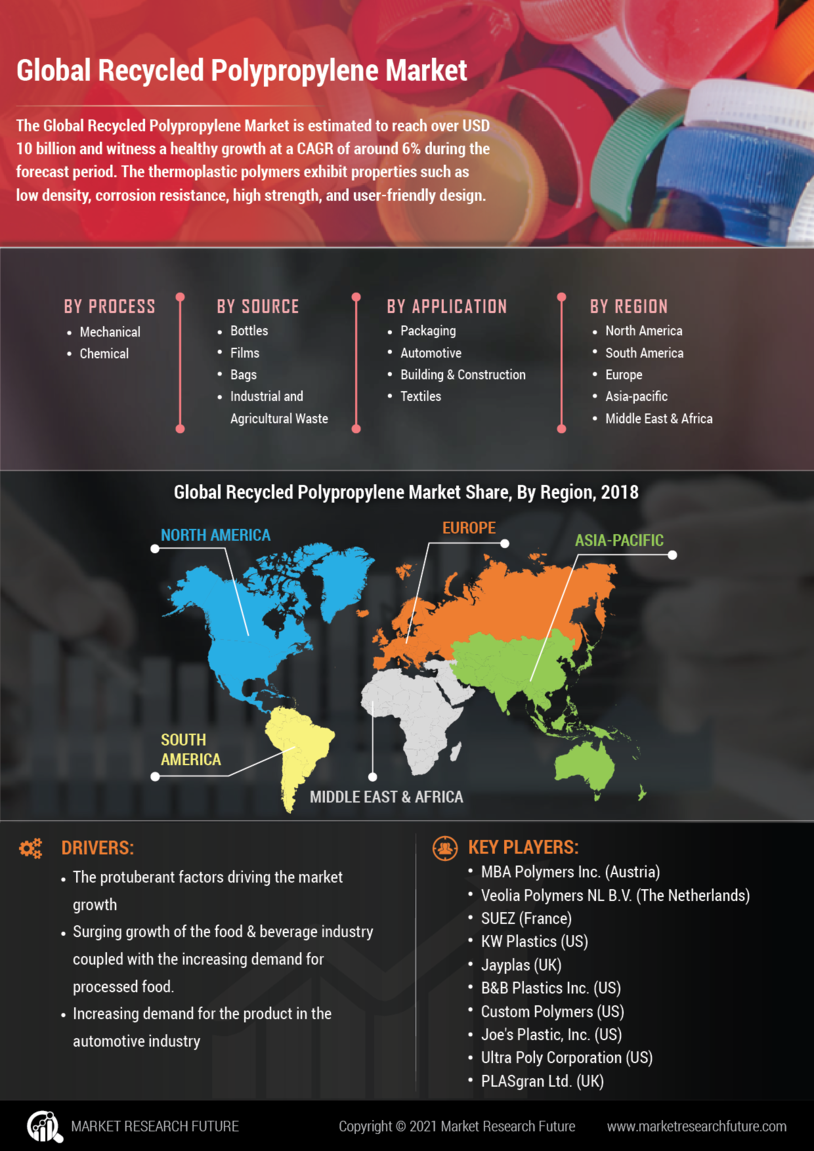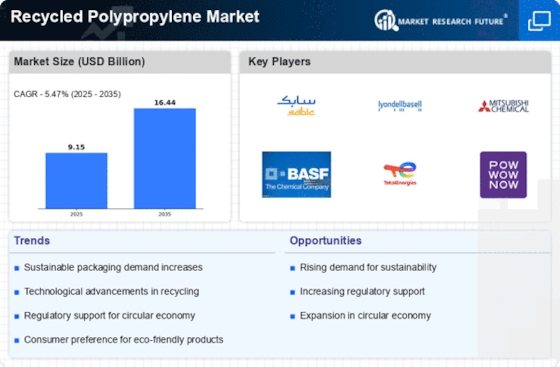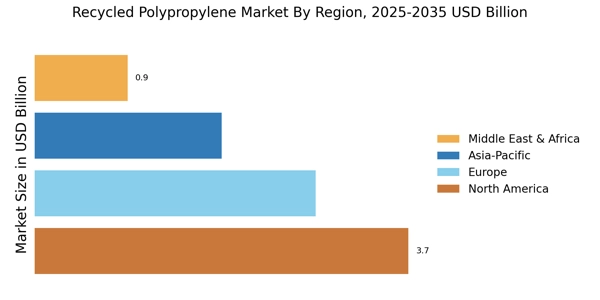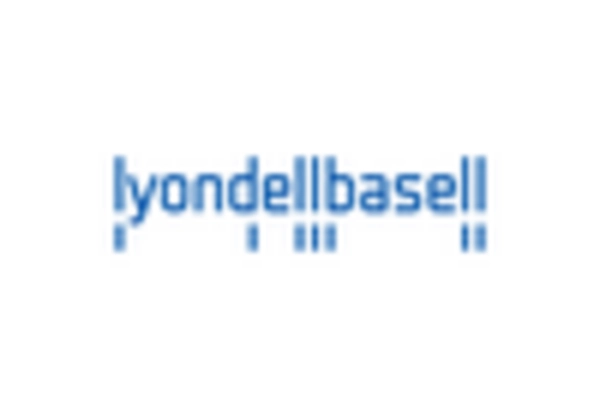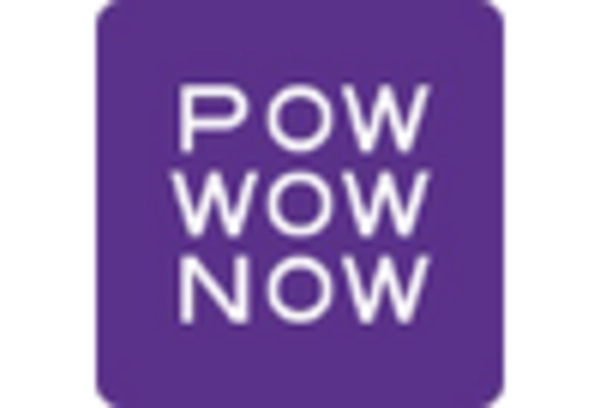Regulatory Incentives for Recycling
The Recycled Polypropylene Market is positively influenced by regulatory incentives aimed at promoting recycling and reducing plastic waste. Governments worldwide are implementing policies that encourage the use of recycled materials, including tax breaks and subsidies for companies that utilize recycled polypropylene in their products. These regulations not only support environmental sustainability but also create a favorable market environment for recycled materials. For instance, some regions have set ambitious recycling targets, which could lead to a significant increase in the demand for recycled polypropylene. As these regulations become more stringent, the market for recycled polypropylene is expected to expand, providing opportunities for growth.
Growing Awareness of Environmental Impact
The Recycled Polypropylene Market is significantly influenced by the growing awareness of the environmental impact of plastic waste. As public concern regarding plastic pollution escalates, there is a corresponding increase in the demand for recycled products. Consumers are increasingly seeking brands that prioritize sustainability, prompting manufacturers to incorporate recycled polypropylene into their offerings. This heightened awareness is driving companies to adopt more sustainable practices, thereby expanding the market for recycled materials. The trend indicates that as environmental consciousness continues to rise, the recycled polypropylene market is likely to experience sustained growth, reflecting a broader shift towards sustainability in consumer behavior.
Increasing Demand for Sustainable Materials
The Recycled Polypropylene Market is experiencing a notable surge in demand for sustainable materials. As consumers become more environmentally conscious, the preference for products made from recycled materials is growing. This shift is reflected in various sectors, including packaging, automotive, and textiles, where companies are increasingly adopting recycled polypropylene to meet sustainability goals. According to recent data, the demand for recycled polypropylene is projected to grow at a compound annual growth rate of approximately 6% over the next five years. This trend indicates a robust market potential for recycled materials, as businesses strive to reduce their carbon footprint and enhance their brand image through eco-friendly practices.
Cost-Effectiveness of Recycled Polypropylene
The Recycled Polypropylene Market benefits from the cost-effectiveness associated with using recycled materials. Recycled polypropylene often presents a lower price point compared to virgin polypropylene, making it an attractive option for manufacturers looking to optimize production costs. This economic advantage is particularly relevant in industries such as packaging and automotive, where margins can be tight. Furthermore, as technology advances, the efficiency of recycling processes improves, potentially lowering costs even further. The ability to produce high-quality recycled polypropylene at competitive prices is likely to drive increased adoption across various sectors, thereby bolstering the overall market.
Technological Innovations in Recycling Processes
The Recycled Polypropylene Market is witnessing advancements in recycling technologies that enhance the efficiency and quality of recycled materials. Innovations such as advanced sorting techniques and improved purification processes are enabling the production of higher-grade recycled polypropylene. These technological improvements not only increase the yield of recycled materials but also expand the range of applications for recycled polypropylene. As manufacturers adopt these new technologies, the market is likely to see a rise in the quality and availability of recycled products. This trend suggests a promising future for the recycled polypropylene market, as businesses seek to leverage these innovations to meet consumer demand.
